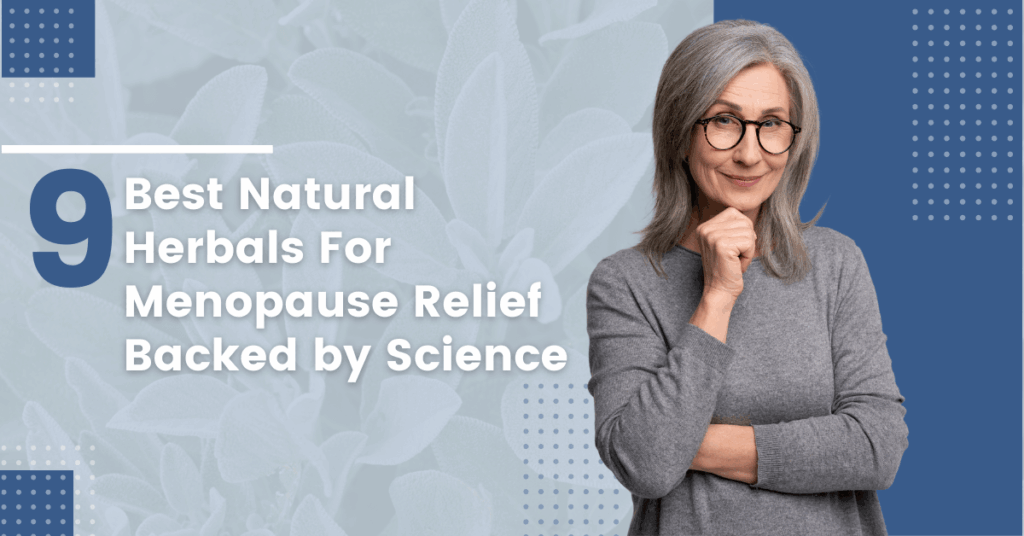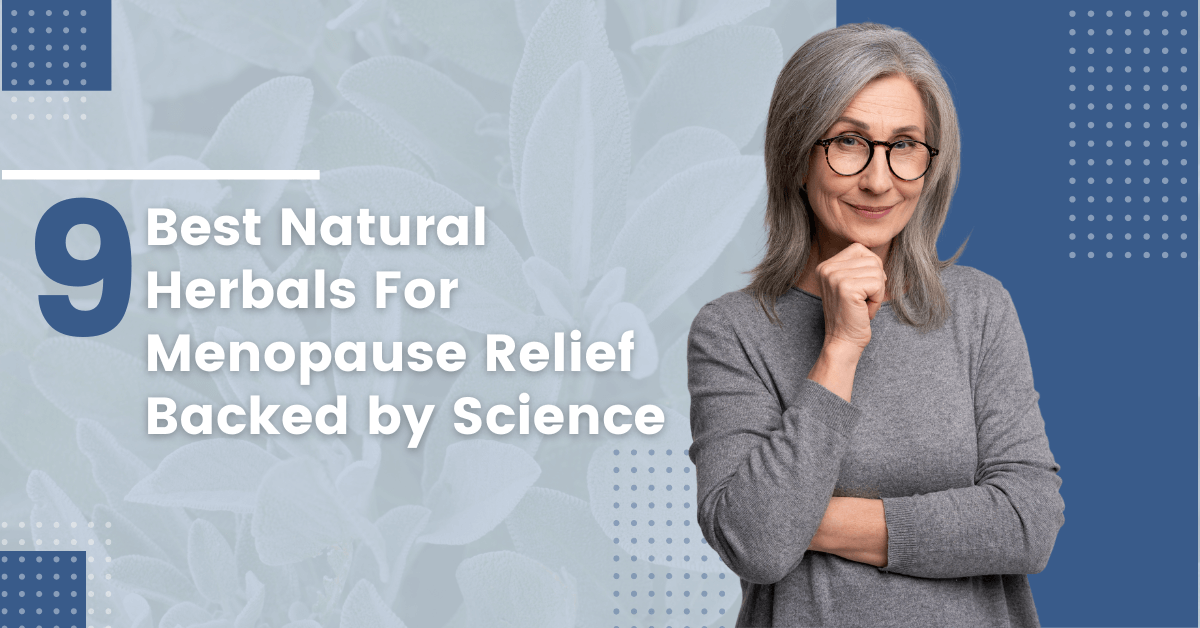
Navigating Natural Menopause Supplements: What Works and What Doesn’t
Menopause, a natural biological process marking the end of a woman’s reproductive years, often brings a cascade of physical and emotional changes. These changes, including hot flashes, night sweats, mood swings, and sleep disturbances, can significantly impact a woman’s quality of life. As women seek relief from these symptoms, many turn to natural menopause supplements. But with a vast array of products available, understanding what truly works and what’s simply marketing hype is crucial. This article provides a comprehensive overview of natural menopause supplements, exploring their effectiveness, potential risks, and what the science says about their role in managing menopausal symptoms.
Understanding Menopause and Its Symptoms
Menopause is officially defined as 12 consecutive months without a menstrual period. This typically occurs in a woman’s late 40s or early 50s. The transition leading up to menopause, known as perimenopause, can last for several years and is characterized by fluctuating hormone levels, primarily estrogen and progesterone. These hormonal shifts are responsible for the wide range of symptoms experienced during this time.
- Hot Flashes: Sudden sensations of intense heat, often accompanied by sweating and flushing.
- Night Sweats: Hot flashes that occur during sleep, disrupting sleep patterns.
- Mood Swings: Irritability, anxiety, and feelings of sadness or depression.
- Sleep Disturbances: Difficulty falling asleep or staying asleep.
- Vaginal Dryness: Decreased vaginal lubrication, leading to discomfort during intercourse.
- Changes in Libido: Decreased sexual desire.
- Weight Gain: Metabolism slows down, making it easier to gain weight.
- Thinning Hair and Dry Skin: Decreased estrogen levels affect hair and skin health.
While hormone replacement therapy (HRT) is a common medical treatment for menopausal symptoms, many women prefer to explore natural menopause supplements as an alternative or complementary approach. This preference often stems from concerns about the potential risks associated with HRT, such as an increased risk of blood clots, stroke, and certain types of cancer.
Exploring Popular Natural Menopause Supplements
The market for natural menopause supplements is extensive, with a variety of products claiming to alleviate menopausal symptoms. However, it’s essential to approach these supplements with a critical eye, considering the scientific evidence supporting their efficacy and potential risks.
Phytoestrogens: Soy Isoflavones, Red Clover, and Black Cohosh
Phytoestrogens are plant-derived compounds that mimic the effects of estrogen in the body. They are found in foods like soy and flaxseed, as well as in supplements derived from plants like red clover and black cohosh. Soy isoflavones, genistein and daidzein, are the most studied phytoestrogens. Some studies suggest that soy isoflavones may help reduce the frequency and severity of hot flashes, while others show little to no effect. The effectiveness of soy isoflavones may vary depending on individual factors, such as gut bacteria composition and the specific type of soy consumed.
Red clover contains isoflavones similar to those found in soy. Some research indicates that red clover supplements may help alleviate hot flashes and improve bone health, but more robust studies are needed. Black cohosh is a popular herbal remedy for menopausal symptoms, particularly hot flashes. While some studies have shown black cohosh to be effective in reducing hot flashes, other studies have found it to be no more effective than a placebo. The effectiveness of black cohosh may also depend on the specific extract used and the dosage.
It’s important to note that phytoestrogens may not be suitable for all women. Women with a history of estrogen-sensitive cancers, such as breast cancer, should consult with their doctor before taking phytoestrogen supplements. [See also: HRT Alternatives for Menopause]
Herbal Remedies: Dong Quai, Ginseng, and Evening Primrose Oil
Dong quai is a traditional Chinese medicine herb often used to treat women’s health issues, including menopausal symptoms. However, scientific evidence supporting the effectiveness of dong quai for menopause is limited. Some studies have shown no significant benefit of dong quai for reducing hot flashes or other menopausal symptoms.
Ginseng is another popular herbal remedy that has been studied for its potential effects on menopausal symptoms. Some research suggests that ginseng may help improve mood, sleep quality, and cognitive function in menopausal women. However, more research is needed to confirm these findings.
Evening primrose oil is a source of gamma-linolenic acid (GLA), an omega-6 fatty acid. It has been traditionally used to treat a variety of conditions, including menopausal symptoms. However, studies have shown that evening primrose oil is generally not effective for reducing hot flashes or other menopausal symptoms.
Vitamins and Minerals: Vitamin D, Calcium, and Magnesium
Vitamin D, calcium, and magnesium are essential nutrients that play important roles in bone health and overall well-being. During menopause, women are at an increased risk of osteoporosis due to declining estrogen levels. Vitamin D and calcium are crucial for maintaining bone density and reducing the risk of fractures. Magnesium also contributes to bone health and may help improve sleep quality and reduce muscle cramps.
While these nutrients are important for overall health, they may not directly alleviate hot flashes or other hormonal symptoms of menopause. However, ensuring adequate intake of vitamin D, calcium, and magnesium can help support bone health and overall well-being during this transition. [See also: Bone Health After Menopause]
Other Supplements: Melatonin and Probiotics
Melatonin is a hormone that regulates sleep-wake cycles. It is often used as a supplement to improve sleep quality. During menopause, sleep disturbances are common, and melatonin supplements may help some women fall asleep and stay asleep. However, the effectiveness of melatonin may vary depending on the individual and the underlying cause of the sleep problems.
Probiotics are live microorganisms that can benefit gut health. Some research suggests that probiotics may help improve mood and reduce inflammation, which may indirectly benefit menopausal women. However, more research is needed to determine the specific types of probiotics that are most effective for managing menopausal symptoms.
Evaluating the Evidence: What Does the Science Say?
When considering natural menopause supplements, it’s crucial to evaluate the scientific evidence supporting their effectiveness. Many supplements are marketed with claims that are not backed by rigorous scientific research. Look for studies published in reputable medical journals and be wary of anecdotal evidence or testimonials. The National Institutes of Health (NIH) and the North American Menopause Society (NAMS) offer evidence-based information on various menopause treatments, including natural menopause supplements.
Remember that supplements are not regulated by the Food and Drug Administration (FDA) in the same way that prescription drugs are. This means that the quality, purity, and potency of supplements can vary widely. Choose supplements from reputable manufacturers that follow good manufacturing practices (GMP) and have their products tested by third-party organizations.
Potential Risks and Side Effects of Natural Menopause Supplements
While natural menopause supplements may seem like a safe alternative to HRT, it’s important to be aware of potential risks and side effects. Some supplements can interact with medications or have adverse effects on certain individuals. For example, black cohosh has been linked to liver problems in rare cases. Always consult with your doctor before taking any new supplement, especially if you have underlying health conditions or are taking medications.
It’s also important to be aware of the potential for allergic reactions to supplements. Read the ingredient list carefully and avoid products that contain ingredients you are allergic to. Start with a low dose of any new supplement and gradually increase the dose as tolerated. If you experience any adverse effects, discontinue use and consult with your doctor.
Making Informed Decisions About Natural Menopause Supplements
Choosing the right natural menopause supplements can be a challenging process. Here are some tips to help you make informed decisions:
- Talk to Your Doctor: Discuss your symptoms and treatment options with your doctor. They can help you determine if natural menopause supplements are right for you and recommend specific products based on your individual needs.
- Do Your Research: Learn about the scientific evidence supporting the effectiveness of different supplements. Consult reputable sources like the NIH and NAMS.
- Choose Reputable Brands: Select supplements from reputable manufacturers that follow good manufacturing practices and have their products tested by third-party organizations.
- Read Labels Carefully: Pay attention to the ingredient list, dosage instructions, and potential side effects.
- Start Low and Go Slow: Begin with a low dose of any new supplement and gradually increase the dose as tolerated.
- Monitor Your Symptoms: Keep track of your symptoms and how they respond to the supplement.
- Be Patient: It may take several weeks or months to see the full effects of a supplement.
Beyond Supplements: Lifestyle Changes for Managing Menopause
While natural menopause supplements can play a role in managing menopausal symptoms, lifestyle changes are also crucial. These changes can help improve overall health and well-being during this transition.
- Healthy Diet: Eat a balanced diet rich in fruits, vegetables, whole grains, and lean protein. Limit your intake of processed foods, sugary drinks, and unhealthy fats.
- Regular Exercise: Engage in regular physical activity, such as walking, swimming, or cycling. Exercise can help improve mood, sleep quality, and bone health.
- Stress Management: Practice stress-reducing techniques, such as yoga, meditation, or deep breathing exercises.
- Adequate Sleep: Aim for 7-8 hours of sleep per night. Create a relaxing bedtime routine and avoid caffeine and alcohol before bed.
- Stay Hydrated: Drink plenty of water throughout the day to stay hydrated.
- Avoid Triggers: Identify and avoid triggers that worsen your symptoms, such as hot flashes. Common triggers include caffeine, alcohol, spicy foods, and stress.
Conclusion: A Holistic Approach to Menopause Management
Navigating menopause can be a challenging experience, but with the right information and support, women can effectively manage their symptoms and maintain their quality of life. Natural menopause supplements can be a valuable tool in this process, but it’s essential to approach them with a critical eye and consult with a healthcare professional. By combining evidence-based supplements with healthy lifestyle changes, women can embrace this new chapter with confidence and well-being. Remember to prioritize your health and seek personalized guidance from your doctor to create a menopause management plan that works best for you.

